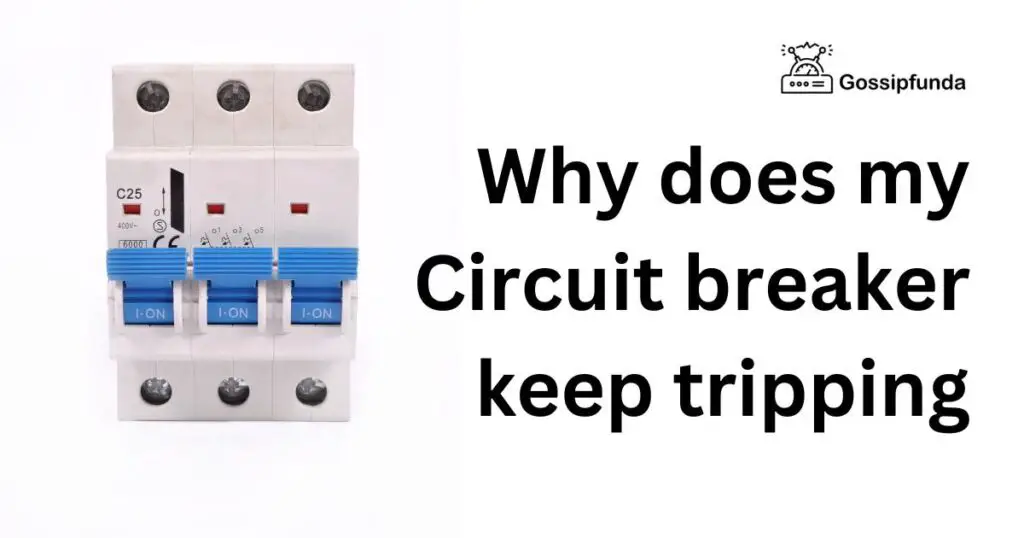Circuit breakers play a crucial role in protecting your home’s electrical system from overloads and short circuits. However, if you find yourself constantly resetting a tripped circuit breaker, it can be frustrating and potentially dangerous. In this comprehensive guide, we will delve into the common reasons why your circuit breaker keeps tripping and explore solutions to prevent this recurrent issue. Whether you’re a homeowner or a renter, understanding the underlying causes and taking appropriate action can save you from inconvenience and potential electrical hazards.
Understanding Circuit Breakers
Before we explore the reasons behind circuit breaker tripping, let’s briefly understand what circuit breakers are. A circuit breaker is a safety device that automatically shuts off electrical power when it detects an overload or a short circuit. It consists of a switch and a tripping mechanism. When too much current flows through a circuit, the breaker “trips,” cutting off power to that specific circuit. This prevents overheating, fires, and other electrical hazards.

Overloaded Circuits
An overloaded circuit occurs when too many electrical devices or appliances are drawing power from a single circuit simultaneously. This excess demand on the circuit can lead to a dangerous situation. Picture your home’s electrical system like a network of roads. Each circuit is like a road with a specific capacity. When you plug in multiple high-wattage appliances or devices into outlets connected to the same circuit, you’re essentially sending too much traffic down that road. As these devices consume electricity, they generate heat. When too many devices are running on the same circuit, the heat generated can become excessive and potentially hazardous.
To prevent overheating and potential electrical fires, circuit breakers are designed to trip, cutting off power to the overloaded circuit. In essence, overloaded circuits are a safety feature, but they can be a nuisance. To avoid overloads, distribute your appliances and devices across different circuits in your home. Consider having dedicated circuits for power-hungry appliances like air conditioners, refrigerators, and washing machines. This way, you’ll ensure that no single circuit is overwhelmed, and your electrical system operates safely and efficiently.
Short Circuits
Short circuits are another common cause of circuit breaker tripping. A short circuit occurs when a hot wire comes into direct contact with a neutral wire or a ground wire. This creates a path of low resistance, allowing an excessive flow of current. The circuit breaker detects this abnormal current and promptly trips to prevent electrical fires.
Short circuits can be caused by damaged wiring, faulty outlets, or even a malfunctioning appliance. If you suspect a short circuit, it’s crucial to identify and address the issue promptly to prevent further damage. Avoid using the circuit until the problem is resolved.
Ground Fault Circuit Interrupters (GFCIs)
GFCIs are specialized outlets designed to protect against electrical shocks and ground faults. They are commonly found in areas with water, such as kitchens, bathrooms, and outdoor outlets. If a GFCI-equipped circuit detects a ground fault, it will trip the circuit to prevent potential electrical injuries.
If your circuit breaker keeps tripping in areas with GFCIs, check for faulty wiring, damaged appliances, or water-related issues. Reset the GFCI outlet by pressing the “reset” button. If it continues to trip, consult an electrician to inspect and repair the circuit.
Aging Electrical Components
Over time, electrical components, including circuit breakers themselves, can deteriorate. Old and worn-out circuit breakers may become less sensitive and prone to tripping even under normal loads. If your home has an outdated electrical panel or circuit breakers, it’s advisable to have them inspected and replaced by a licensed electrician.
Upgrading your electrical system not only ensures safety but also allows for better power distribution and efficiency. Modern circuit breakers are designed to meet the demands of today’s electrical appliances and technology.
Faulty Appliances
Sometimes, the culprit behind a tripping circuit breaker is a malfunctioning appliance. Appliances with damaged cords, frayed wires, or internal electrical issues can create electrical faults that trigger the breaker. To identify the problematic appliance, unplug all devices connected to the circuit and then reset the breaker. Gradually plug in each appliance one by one until the breaker trips again. The last appliance you plugged in is likely the source of the problem.
Repair or replace the faulty appliance to prevent future circuit trips. Regularly inspect your appliances for signs of wear and tear to catch potential issues early.
Conclusion
In conclusion, a circuit breaker that keeps tripping is a warning sign of electrical issues that should not be ignored. Overloaded circuits, short circuits, faulty GFCIs, aging components, and malfunctioning appliances are among the common culprits. Regular maintenance, proper electrical distribution, and timely repairs can help prevent frequent circuit breaker trips, ensuring the safety and reliability of your electrical system.
If you’re unsure about the cause of the tripping or lack electrical expertise, it’s always best to consult a professional electrician for a thorough inspection and necessary repairs. By addressing these issues promptly, you can enjoy a safer and more efficient electrical system in your home.
FAQ’s
Circuit breakers trip due to overloads, short circuits, or faulty appliances, protecting against electrical hazards.
Short circuits result from damaged wiring, faulty outlets, or appliance malfunctions. Address these issues promptly.
Ground Fault Circuit Interrupters (GFCIs) protect against shocks and ground faults, tripping when detecting abnormalities.
Yes, old circuit breakers may become less sensitive; consider upgrading for safety and efficiency.
Prachi Mishra is a talented Digital Marketer and Technical Content Writer with a passion for creating impactful content and optimizing it for online platforms. With a strong background in marketing and a deep understanding of SEO and digital marketing strategies, Prachi has helped several businesses increase their online visibility and drive more traffic to their websites.
As a technical content writer, Prachi has extensive experience in creating engaging and informative content for a range of industries, including technology, finance, healthcare, and more. Her ability to simplify complex concepts and present them in a clear and concise manner has made her a valuable asset to her clients.
Prachi is a self-motivated and goal-oriented professional who is committed to delivering high-quality work that exceeds her clients’ expectations. She has a keen eye for detail and is always willing to go the extra mile to ensure that her work is accurate, informative, and engaging.


